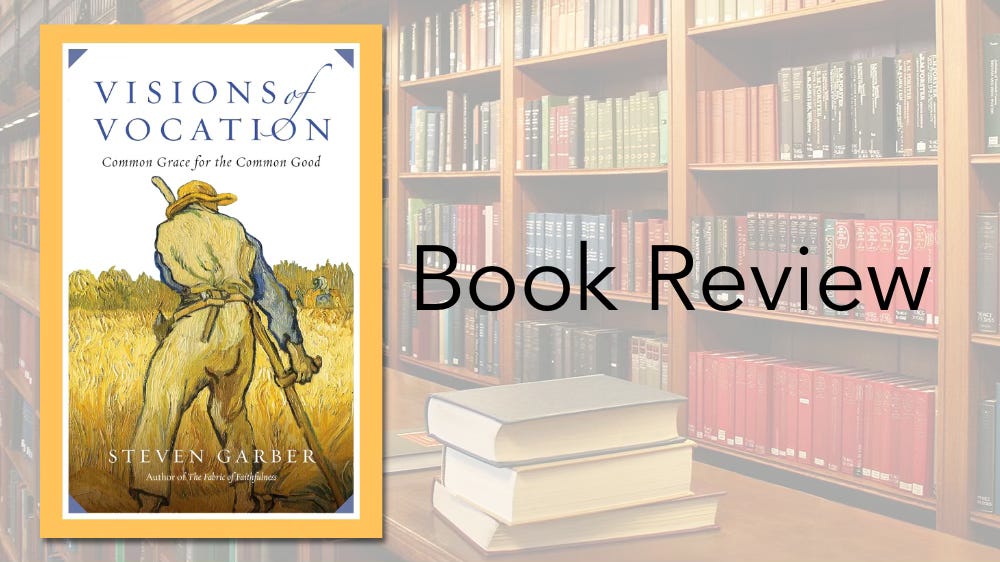Book Review: "Visons of Vocation" by Steven Garber
Visions of Vocation by Steven Garber
This is the book that I referred to as “A book magnifying the beauty and dignity of relationships in our occupations - which urges us to answer the question, "Know…



